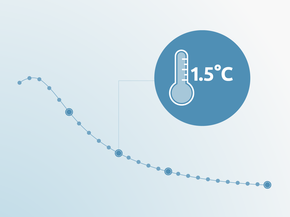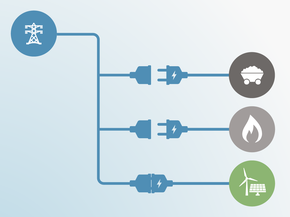Country summary
Overview
This assessment includes our policy analysis from 22 September 2020 translated into our new rating methodology without new analysis of Mexico’s climate policies since then, except the NDC update submitted in December 2020. We will fully analyse Mexico in the coming months and the rating may change.
The CAT rates Mexico’s climate targets and policies as “Highly insufficient”. The “Highly insufficient” rating indicates that Mexico’s climate policies and commitments are not consistent with any interpretation of a fair-share contribution and lead to rising, rather than falling, emissions, with an exception being Mexico’s conditional NDC target, which roughly stabilises emissions at today’s level. We rate this internationally supported target as “Insufficient” as it is not in line with modelled domestic pathways, and the unconditional target as “Critically insufficient”, meaning that this target is falling far behind the country’s fair share contribution.
Furthermore, Mexico’s plans to not increase its 2030 mitigation ambition are contrary to the Paris Agreement’s requirement that each successive NDC should represent a progression on their mitigation efforts. This sends negative signals to the international community that Mexico is not serious about its commitment to reduce GHG emissions in line with the Paris Agreement climate goals.
We rate Mexico’s policies and actions as “Highly insufficient”. The “Highly insufficient” rating indicates that Mexico’s policies and action in 2030 lead to rising, rather than falling, emissions and are not at all consistent with the Paris Agreement’s 1.5°C temperature limit. If all countries were to follow Mexico’s approach, warming could reach over 3°C and up to 4°C.
In the midst of the pandemic, the Mexican Ministry of Energy published a bill (fast tracked due to COVID-19) that would effectively halt private renewable energy investment in the country, prioritising the government's own ageing, fossil fuel-fired power plants. The government said the pandemic caused a huge drop in electricity demand as factories closed and power feeds from renewable sources would have to be postponed during the pandemic, their argument being that the intermittent nature of renewable energy projects would produce oscillation in the electrical system which the National Electrical System could not deal with.
Since 2013, Mexico has continued to report its historical emissions at higher levels than the already high emissions projections under the NDC baseline submitted in 2016. According to our assessment, based on the projected drop in GDP due to COVID-19, Mexico’s emissions in 2020 will be 13% - 14% lower than in pre-pandemic conditions. This reduction in emissions cannot be considered sustainable if the government does not introduce permanent measures to foster the structural changes needed to transition to a low-emissions economy as part of the country’s COVID-19 recovery package.
The decision to favour fossil fuel generation over renewable energy now puts Mexico on a path that is even more inconsistent with the steps needed to achieve the Paris Agreement's 1.5°C limit. Its plans for the power sector - especially the decision to continue investing in coal - stands in stark contrast to what is required to achieve the 1.5°C limit. The Paris Agreement means no new coal plants, reducing emissions from the existing coal fleet globally by two-thirds over 2020-2030 and to zero by 2050.
The full policies and action analysis can be found here.
We rate the conditional NDC target as “Insufficient” when compared to modelled domestic emissions pathways. The “Insufficient” rating indicates that this target needs substantial improvements to be consistent with the Paris Agreement’s 1.5°C temperature limit. If all countries were to follow Mexico’s approach, warming would reach over 2°C and up to 3°C.
We rate Mexico’s 2030 NDC target as “Critically insufficient” when compared with its fair-share contribution to climate action. The “Critically insufficient” rating indicates that Mexico’s fair share target in 2030 reflects minimal to no action and is not at all consistent with the Paris Agreement’s 1.5°C temperature limit. Mexico’s target is not in line with any interpretation of a fair approach to meeting the Paris Agreement’s 1.5°C limit. If all countries were to follow Mexico’s approach, warming would exceed 4°C.
The land use, land-use change and forestry has been a stable sink in Mexico over the last 20 years.
Further analysis
Latest publications
Stay informed
Subscribe to our newsletter






